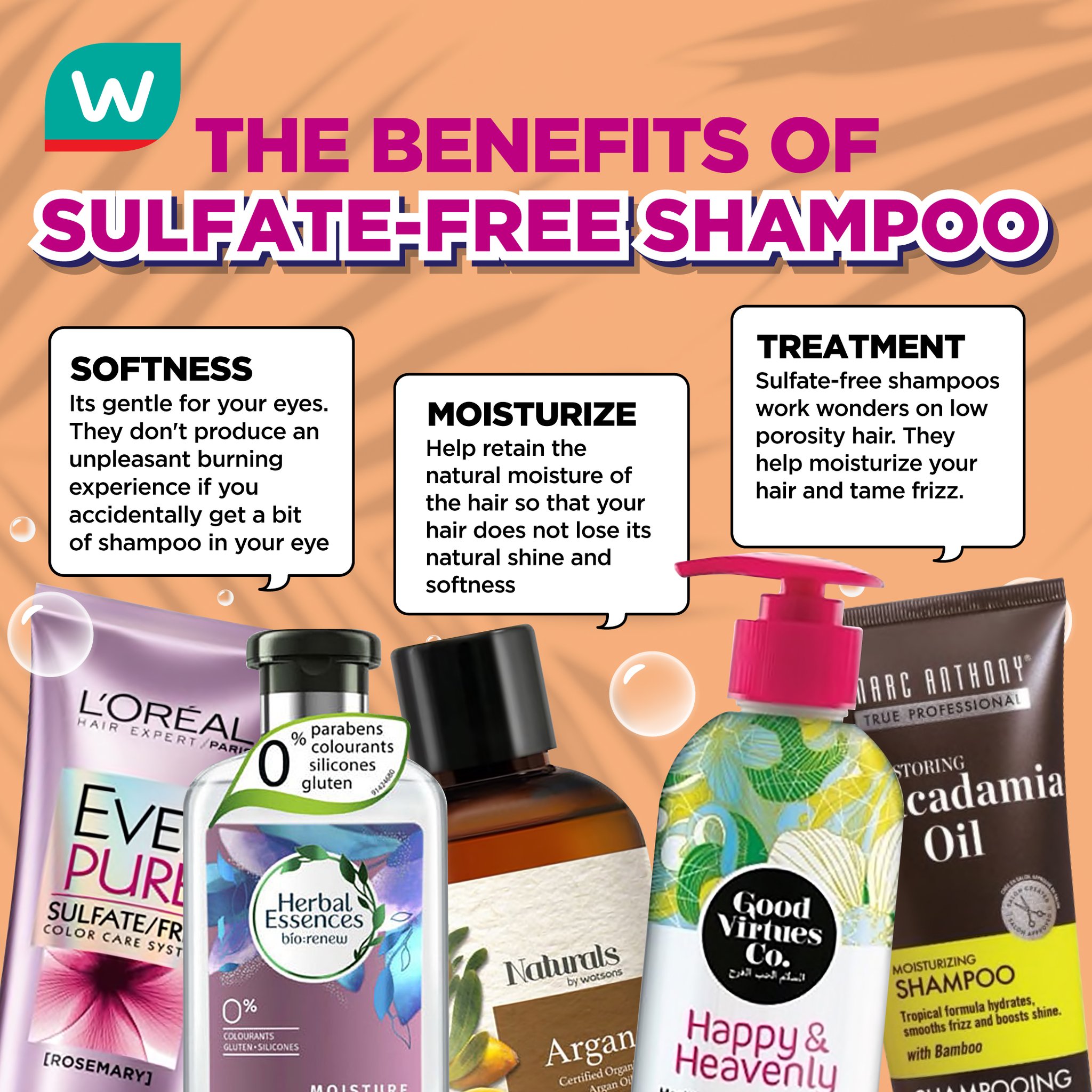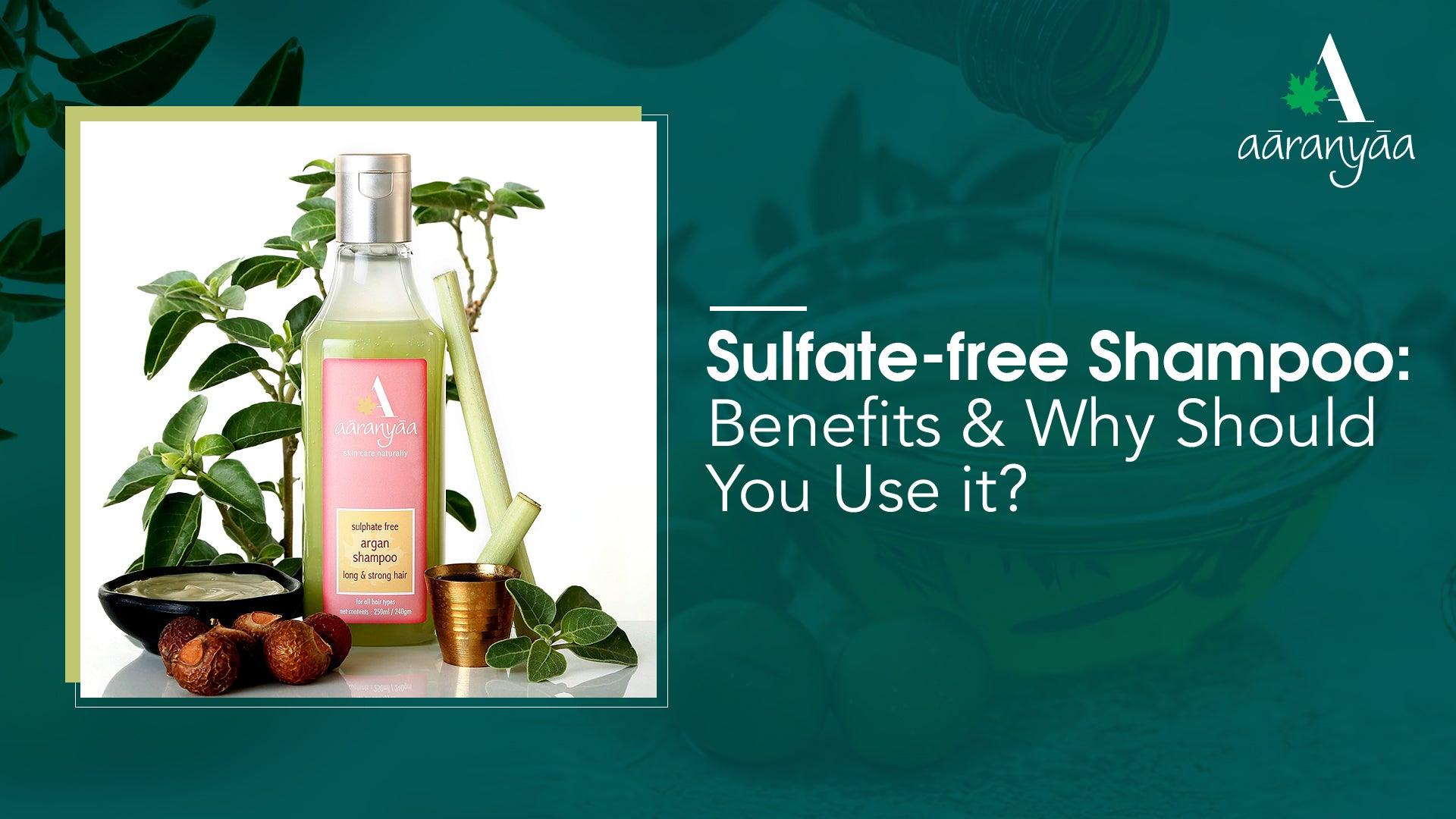All about Sulfate Free Shampoo
Table of ContentsSome Known Facts About Sulfate Free Shampoo.The Best Guide To Sulfate Free ShampooThe Definitive Guide to Sulfate Free ShampooNot known Facts About Sulfate Free ShampooSulfate Free Shampoo - Truths

trigger minimum to minor damage to your precious locks. So who should use them? Sulfate free hair shampoos can be made use of by anybody with sensitive scalp and chemically dealt with hair. People who clean their hair often needs to also utilize it. It is advised that even children ought to utilize sulfate-free hair shampoos as they are mild and mild on their scalp.
The term sulfate-free shampoo has actually become one of the hottest buzzwords in the haircare industry. While many specialists may speak about its countless advantages and advertise it, have you ever before wondered what sulfate-free truly means? In this short article, we discuss everything from the usages, advantages, and relevance of sulfate-free hair shampoos.
Rumored Buzz on Sulfate Free Shampoo
Sulfates are taken into consideration to be excellent cleaning representatives [1] They are claimed to have deepest cleaning residential or commercial properties as contrasted to various other cleansing active ingredients. Sulfates belong to the anionic surfactants class of cleansers that clean away compounds. Most of the shampoos have both major kinds of sulfates. These sulfates create a lathering impact to remove oil and dust from the hair.
If you have sensitive scalp, sulfates can trigger irritation, redness, dryness, etc. Although sulfates may commonly be considered a staple component in hair shampoos, they might not be appropriate for everybody, especially if you hair shampoo your hair daily. Also, it can be harming to particular hair types and may even create skin irritability in some individuals.

Sulfate-free shampoos not only have moisturizing representatives yet also make your hair shinier. Utilizing such a shampoo with each resource other with conditioner can include appeal to your hair. Sulfates are extreme on the scalp and might cause irritation and itchiness. Sulfate-free shampoos are much milder and can help you control scalp swelling.
Some Ideas on Sulfate Free Shampoo You Need To Know
Sulfate-free shampoos help you stay clear of lasting exposure to perhaps toxic chemical substances. Individuals with dyed hair needs to prevent using sulfate hair shampoos as they are harsh cleansers that remove the color. Those with completely dry or kinky hair too needs to decide for sulfate-free shampoos to keep the natural oils on the scalp and hair, and retain dampness.

Some of the noticeable signs of sulfate allergic reaction are: Itchiness Rashes Inflammation Hives Swelling Sensitive symptoms may happen due click to read to various other factors too. Speak to your physician to review if special info you have a sulfate allergy.
These all-natural surfactants properly remove dust, particles, oil from your hair and are gentler on skin. Sulfates were as soon as thought to be cancer causing, but there is insufficient evidence to prove this yet [4] Most products which contain sulfates use it in an extremely reduced concentration. Even if they are not fantastic for your hair, they are not that bad for you.
Some Known Factual Statements About Sulfate Free Shampoo
It's ideal to inspect your hair health and get in touch with a medical professional before changing to a sulfate-free hair shampoo.
Whether your hair is dry or oily depends upon the structure of your hair. Normally, hair that is straight and great is oilier than thick, curly hair (sulfate free shampoo). While prolonged and everyday use sulfate hair shampoos can make the hair rough and brittle, sulfate-free hair shampoo and conditioner can be made use of each day without harming your hair
This mainly depends on your hair kind and the density of oil you make use of prior to cleaning. Generally, active ingredients in sulfate-free hair shampoos are so light that your hair might feel greasy even after a detailed clean.
Sulfate Free Shampoo - The Facts
This, many of the makers add higher focus of surfactants to make the shampoo durable. This, however, damages the function of using sulfate-free hair shampoos as the higher focus triggers greasiness in the hair.
Since they are moderate and work carefully, they will not dry out your hair, or fade your shade too quickly, unlike a shampoo that has sulfates. The greatest problem with sulfate-free hair shampoo is that several producers change sulfate with olefin sulfonate, which is a 'close cousin' to sulfate. Although it might come to be sulfate-free with a moderate variant, it can be harsher than the original sulfate.
Visualize that you invested in a delicate garment and desired to maintain it in top problem. Many people would certainly stay clear of the second optionbecause nobody wants to damage something so special, delicate, and hard to replace.